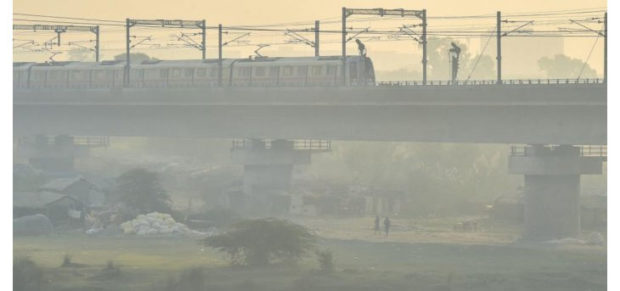

PTI, Jan 17, 2021, 12:44 PM IST

Los Angeles: In a first-of-its-kind study, scientists have assessed the influence of human activities on extreme fire weather risk, and found that greenhouse gas emissions and air pollution have distinct regional impacts on wildfire outbreaks.
The research, published in the journal Nature Communications, analysed the climate under various combinations of human influences since 1920, isolating individual effects and their impacts on extreme fire weather risk.
While previous studies found that human activities and their products like greenhouse gas emissions, and air pollution raise the risk of extreme fire weather, the scientists, including those from the University of California (UC) Santa Barbara in the US, said the specific influence of these factors has been unclear.
“To get a wildfire to ignite and spread, you need suitable weather conditions — you need warm, dry and windy conditions,” explained Danielle Touma, a co-author of the study from UC Santa Barbara.
“And when these conditions are at their most extreme, they can cause really large, severe fires,” Touma said.
According to the researchers, heat-trapping greenhouse gas emissions are the dominant contributors to temperature increases around the globe.
By 2005, they said emissions raised the risk of extreme fire weather by 20 per cent from preindustrial levels in western and eastern North America, the Mediterranean, Southeast Asia, and the Amazon.
The study predicted that by 2080, greenhouse gas emissions are expected to raise the risk of extreme wildfire by at least 50 per cent in western North America, equatorial Africa, Southeast Asia and Australia, while doubling it in the Mediterranean, southern Africa, eastern North America and the Amazon.
According to the scientists, biomass burning and land-use changes have more regional impacts that amplify greenhouse gas-driven warming.
The study noted a 30 per cent increase of extreme fire weather risk over the Amazon and western North America during the 20th century caused by biomass burning.
Land use changes, according to the research, also amplified the risk of extreme fire weather in western Australia and the Amazon.
The scientists said industrial aerosols block some of the solar radiation from reaching the ground and tend to have a cooling effect on the climate.
“We knew something had been compensating in a sense for greenhouse gas warming, but not the details of how that compensation might continue in the future,” said Samantha Stevenson, a co-author of the study from UC Santa Barbara.
However, in Southeast Asia, “where aerosols emissions are expected to continue,” the study said there may be a weakening of the annual monsoon, drier conditions and an increase in extreme fire weather risk.
“Southeast Asia relies on the monsoon, but aerosols cause so much cooling on land that it actually can suppress a monsoon,” Touma said.
“It’s not just whether you have aerosols or not, it’s the way the regional climate interacts with aerosols,” he added.
The scientists hope that the current understanding of fire risk at a regional scale helps in mitigation and planning purposes.
“In the broader scope of things, it’s important for climate policy, like if we want to know how global actions will affect the climate,” Touma said.
“And it’s also important for understanding the potential impacts to people, such as with urban planning and fire management,” he added.
Udayavani is now on Telegram. Click here to join our channel and stay updated with the latest news.




Air pollution, extreme weather could increase risk of prolonged pregnancy: Study


Carbohydrate cravings may be related to overall severity of depression: Study


SAHAYOGA: Comprehensive care for children with Type 1 Diabetes launched at MAHE Manipal


Newer Advances in Blood Cancer Treatment


Death rates in young adults remain higher post-pandemic, US study finds


Passengers got confused between ‘Prayagraj Express, Prayagraj Special’, causing stampede: Sources


2nd US flight in Amritsar, many deportees complain being shackled; third plane on Sunday night


IPL 2025 schedule announced: Opening match between KKR and RCB on March 22


5 of 18 victims of stampede at Delhi railway station died due to traumatic asphyxia: Hospital


RSS chief Mohan Bhagwat emphasises unity of Hindu society, calls it country’s responsible community
You seem to have an Ad Blocker on.
To continue reading, please turn it off or whitelist Udayavani.